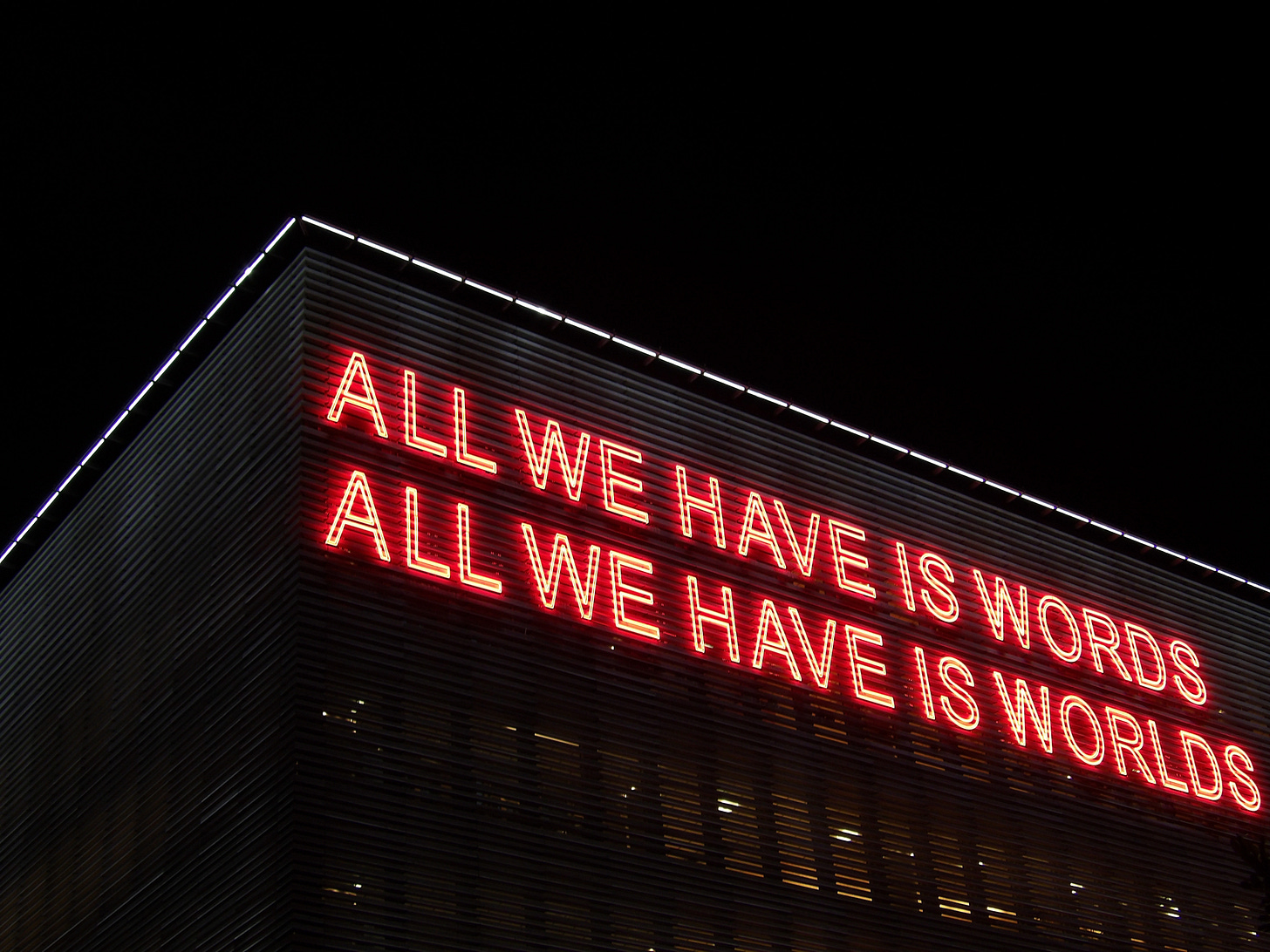An Exchange on Christian Realism
If "critical realism" is followed to its logical conclusion, then we impose our concepts upon the world, and they do not help us interpret the world but occlude it from our view.
In my post, “What Is My Dissertation About? Bertrand Russell and the Objects of Thought,” I laid out my argument for what I called “Christian direct realism,” as opposed to indirect realism. According to Christian direct realism, human beings know the world without concepts, frameworks, or presuppositions functioning as intermediaries. Accordingly, Christian thinking does not require putting on Christian conceptual glasses, the fabled “Christian worldview,” but viewing the world directly and finding Christ in it.
In many corners, “direct realism” is known as “naive realism,” and this reflects how many people view it, simply naively ignoring the way that human beings actually think, shaped by their cultural context, their flawed psychology, and their presuppositions. One of my readers gave helpful expression to an alternative view to mine, Critical realism, which acknowledges that we can know the world but argues that it is always through our conceptual frameworks. I responded in the comments, but I republish our exchange here, lightly edited:
Esteemed Reader:
Joel - I would love to talk with you more about this topic someday, specifically regarding "Christian direct realism". As I have mentioned in our previous conversation, I am a social scientist and I have been operating under the assumption that social scientific research broadly makes "direct realism" an infeasible position to take. I myself base my work on critical realism which I learned from Catholic sociologist, Christian Smith (I would recommend his book What is a Person? to you; it also lays out much of his critical realist account); one central pillar of critical realism is that people use mediating conceptions, frames, codes, etc. to interpret the world even as critical realism agrees that they are interpreting a common world in contrast to "anti-realist" social scientific views. This seems to make sense with social scientific/historical understandings that have documented wide-ranging beliefs about the world and the nature of basic human things (i.e. reproduction, knowledge, sex, food, etc.) among various different human communities throughout history. I think that critical realism also comes under your critique, and I would be interested to learn more about why you think direct realism is the answer.
Yours Truly:
Thanks for this! Let me give it a go.
In your statement of critical realism, "mediating conceptions, frames, codes, etc." are what people use to interpret the world, and there is a common world - we're not just constructing our own subjective world. Let me summarize these mediating terms as concepts. In short, we interpret the world through our concepts.
In short, my argument is that our concepts must be themselves received from and reflective of the world, or they are not just incorrect but empty or meaningless.
Commonly, people think of knowledge as divided into an active side, our concepts, and a passive side, our experience of the world. And the critical realist line, also called neo-Kantianism by many, is that we view the world through our concepts, we interpret the world through our concepts. However, if this way of thinking is followed to its logical conclusion, then our concepts are imposed upon the world, and they don't help us to interpret the world, but occlude the world from our view. People shift from a neo-Kantian insight to saying things like, "You can only view the world through your own concepts."
But this assumes that the only way for us to know the world would have to be without all concepts, pure experience, brute empiricism. In short, it's realism with brute empiricism or critical realism (or worse) with our concepts interpreting experience to us. I think that this is a dichotomy to escape, rather than something to embrace one side of. (Maybe I would want to avoid the term "direct realism" in the future because it sounds too much like brute empiricism.)
There's only so much I can say right now, so let me focus on one way of escaping this dichotomy. In analytic philosophy, it's called meaning externalism. Meaning externalism is that the meaning of our words or concepts is not determined by what's in our mind or head, whereas meaning internalism would say that they are. For example, some people (following Thomas Kuhn) say that Newton's concept of force differed from Einstein's concept of force. After all, Newton said that Force = mass times acceleration, whereas Einstein said that ... something more complicated. :) But this assumes that the meaning of a word is determined by what a person thinks about it. Therefore, Einstein didn't really disagree with Newton about force; he introduced a different concept, Einsteinian force as opposed to Newtonian force. Then, they viewed the world through these different concepts; what they see are almost two different worlds. (This is the neo-Kantian, almost social constructionist idea.)
But a variety of figures - chiefly Saul Kripke and Hilary Putnam - cogently argued since the seventies that "concepts" that express what are called natural kinds, everything in the natural world from "horse" to "force," do not have a meaning that is "internal" but rather give expression to a kind of thing that must be empirically discovered. Accordingly, what we take to be definitions of our concepts are accountable to reality and empirical discovery. This means that Newton and Einstein were both speaking about force, a phenomenon encountered in the natural world, and saying different things about it.
How does critical realism or neo-Kantianism fare, given meaning externalism? Well, we can't think of (at least certain) concepts as being imposed on reality, because they are received, however imperfectly, from reality via sense experience. Now, what is true is that our understanding of the world is not just one direct sense experience after another. Rather, we generalize and expect to find the same again. We could think of Newton's theory as arising from certain kinds of experiences (and experiments), and Newton and Newtonians taking those to be completely general. But Einstein comes along and shows that other experiences (and experiments) require a somewhat different general theory. And of course, at the periphery even today, there are questions about whether Einstein's theory can account for everything. In short, it is true that we understand the world in general frameworks, but these general frameworks are themselves received from experience, are accountable to experience, and change by further experience.
This view is strongly empirical and realist, but it does not insist, "We know reality!" (Fist hitting table to prove that the world exists.) Instead, it allows for all sorts of complexity and possibility of error in our knowing the world. But it avoids the implicit idea of concepts being imposed on reality that comes in even critical realism. Let me know what of that made sense, and what I should explain further in a future post!
The same goes for my readers. Let me know what made sense and what I should explain further! And while my article on my dissertation topic discusses realism, you may be interested to also read this post on Christian empiricism:
Based Belief: On the Possibility of Christian Empiricism
Alongside my article on Christian empiricism, I am making available an eBook on the strictest form of Christian coherentism, titled, “50 Errors of Christian Presuppositionalism.” Click this link to download. 1. Against Christian Coherentism My intellectual nemesis, to a certain extent, is Christian coherentism. Christian coherentism argues that what Chris…










I'm not sure I'm following the distinctions... obviously reality and interpretation/meaning always play into things, the question is how. I feel like you are viewing critical realism like a detached post-modern subjectivism, rather than what I understand to be a humble empiricism. I think critical realism agrees that you have a direct experiences from reality, but recognizes that how that actually lands with us is complicated... e.g. Jacob deceiving Isaac to appear as Esau.
Can't we distinguish a Critical Direct Realism, rather than a Naive Direct Realism which doesn't take into account the journey of meaning building? Can we touch grass and recognize the impact of conceptual frameworks (and other embodied ways of knowing and relating...)? Are you worried that critical realism makes a way for a totalizing presuppositionalism?